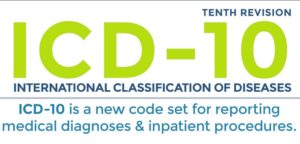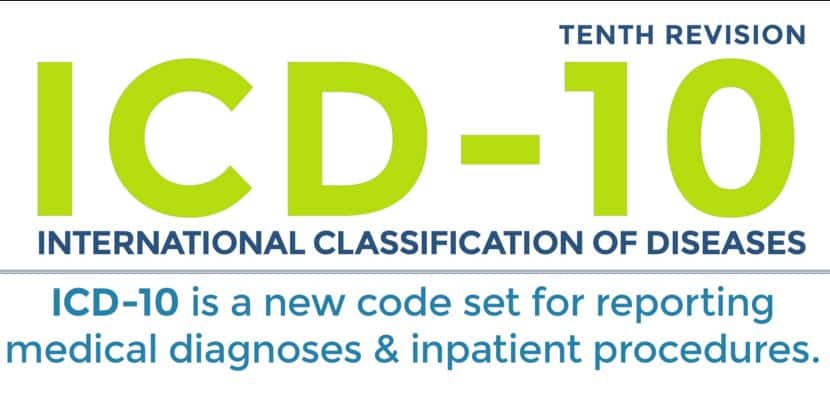Establishing a Distinct ICD-10 Code
by Jon D. Kaiser, MD – CFS researcher, clinician, and patient
Dr. Jon Kaiser is a recovered CFS/ME patient, clinician, and researcher who has been caring for people with CFS/ME, AIDS, and cancer for the past twenty-five years. In this guest blog he shares his thoughts on the importance of getting an ICD-10 code established specifically for ME/CFS/SEID.
__________
Those of us working in this field have been encouraged of late by the heightened interest in this disease. The Institute of Medicine (IOM) report released in early 2015 represented a big step toward mainstream acceptance. However, during my three decades of experience as a CFS researcher, clinician, and patient, I believe that unless this disease is firmly integrated into mainstream medicine, progress on its diagnosis and treatment will remain incremental at best.
Much of my experience comes from having cared for patients during the early days of the AIDS epidemic. When I started treating patients with HIV/AIDS, the HIV virus had not yet been discovered. We didn’t know what was causing our patients to die and we didn’t have any blood tests to diagnose or monitor the disease. We also did not have any available treatments. Another commonality was the way in which HIV/AIDS was marginalized by society. President Ronald Reagan never once uttered the term “AIDS” during his presidency despite thousands of people dying from this epidemic.
So what factors brought about a transformation in how HIV/AIDS was diagnosed and treated?
- First and foremost, the cause of the illness was discovered.
- Second, massive amounts of “Big Pharma” money (tens of billions of dollars) poured into researching treatments.
- Third, a biological marker of disease progression, the CD4 count, was identified.
- And fourth, the health insurance industry gave the disease a reimbursement code and never hesitated to cover its treatment.
I believe all of these milestones need to occur for CFS/ME/SEID to be properly incorporated into mainstream medicine. While it may take additional time to acquire substantial research funding and useful blood tests, establishing an insurance reimbursement code specifically for this disease can be achieved in the short-term. This would represent a significant milestone in achieving at least one of the key factors necessary for this disabling condition to be recognized by mainstream medicine.
Regardless of one’s opinion on the pros and cons of the new name set forth by the recent IOM report, I believe that having an insurance reimbursement code for SEID would go a long way to establishing credibility for it as a mainstream disease thereby helping physicians and patients to receive adequate reimbursement by third-party payers. The IOM report itself states, “a new independent code should be assigned for this disease in the current edition of the International Classification of Diseases.”

Despite severely limited resources, patients with this condition have fought long and hard to attain mainstream acceptance of this disease. Establishing an insurance reimbursement code specifically for SEID would mark a significant step forward in this effort.


 Lucinda Bateman, MD, is a renowned clinician, researcher, and educator. Her Johns Hopkins University Medical School training instilled an approach to care that she has employed throughout her career - the patient comes first and the unknown or unexplained does not equate to a lack of proper and compassionate care. Since starting her own practice in 2000, she has served on six boards or committees, been the principal investigator for 45 studies, authored/coauthored 40 journal articles, served as adjunct instructor and adjunct assistant professor in the University of Utah Departments of Preventative Medicine, Internal Medicine, and Anesthesiology, and lectured around the world.
Lucinda Bateman, MD, is a renowned clinician, researcher, and educator. Her Johns Hopkins University Medical School training instilled an approach to care that she has employed throughout her career - the patient comes first and the unknown or unexplained does not equate to a lack of proper and compassionate care. Since starting her own practice in 2000, she has served on six boards or committees, been the principal investigator for 45 studies, authored/coauthored 40 journal articles, served as adjunct instructor and adjunct assistant professor in the University of Utah Departments of Preventative Medicine, Internal Medicine, and Anesthesiology, and lectured around the world.